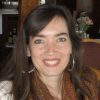The Maryknoll Fathers and Brothers center and residence in Bolivia finds new life through its green project.
Hummingbirds whir and monarch butterflies flit from one bush to another. Koi swim in small pools. Chickens roam the grounds, as do two llamas — Domingo and Catalina — munching on hibiscus flowers. The Maryknoll Fathers and Brothers center and residence in Cochabamba, Bolivia, bustles with life.
“What I love here are two things,” says Maryknoll Father Alejandro Marina, 57, the local superior. “One is the history of what we have done here as Maryknoll … Second, I love the ongoing potential of this place in service to mission.”
Father Marina, who was incardinated into Maryknoll after serving through the associate priest program, first came to the Cochabamba center two decades ago. Now, he says, he has spent the past couple of years identifying responsible uses for the center’s land and buildings.
Among the several partner organizations that have found a home on the five-acre property is Kawsay (“to live” in the local Quechua language). In addition to office space, its members and staff use an eco-friendly outbuilding with a kitchen and outdoor ovens. There, they practice techniques such as baking pastas made out of legumes and vegetables, or dehydrating potatoes that can be stored for years and then ground into flour.
Kawsay Director Leonel Cerruto explains that these methods are taught in workshops offered to marginalized people in both urban and rural communities, promoting sustainable practices.
“In a throw-away culture where everything is disposable, even nature and people, our Mother Earth School recovers ancestral knowledge and analyzes new technologies,” he says. Before leading Kawsay, Cerruto worked for many years at San Gabriel, an Indigenous-language radio station founded by Maryknoll.
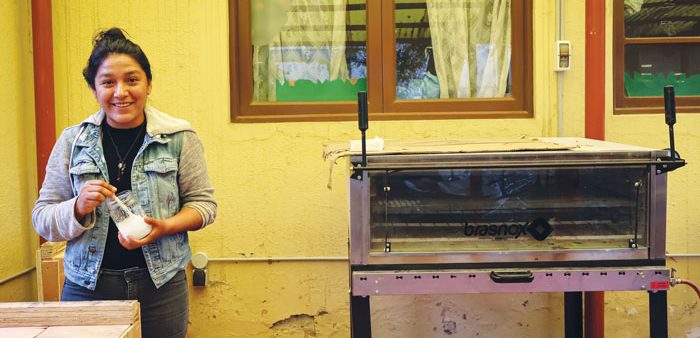
Initiatives like Kawsay’s are urgent, Cerruto says, noting that Bolivia has been experiencing widespread drought and subsequent fires that burn out of control.
“As the Church, how can we not raise consciousness and seek alternatives?” he asks.
A leader from another partner organization says that Maryknoll’s support of their organic produce collective has been “a blessing.” Rene Encinas, former president of the Association of Ecological Agricultural Producers (APAE), says their goal is to offer nutritional alternatives for families.
“Lots of producers are growing — but not in a healthy way,” he says, citing pesticides, genetic engineering and large-scale monoculture as harmful agricultural practices. In contrast, APAE consists of “60 families who are conscientized and committed to the environment.”
“Our land in Cochabamba is very productive,” Encinas says. Growing organically is not the problem, he continues, marketing is. Founded in 2018, APAE struggled to find buyers. “We began to knock on doors,” Encinas says. Eliza Encinas Diaz, current president of APAE, says: “It hasn’t been easy, but it’s not impossible, either.” Her family grows a variety of vegetables on their land. Thanks to partners like Maryknoll, she says, they are able to make a living.
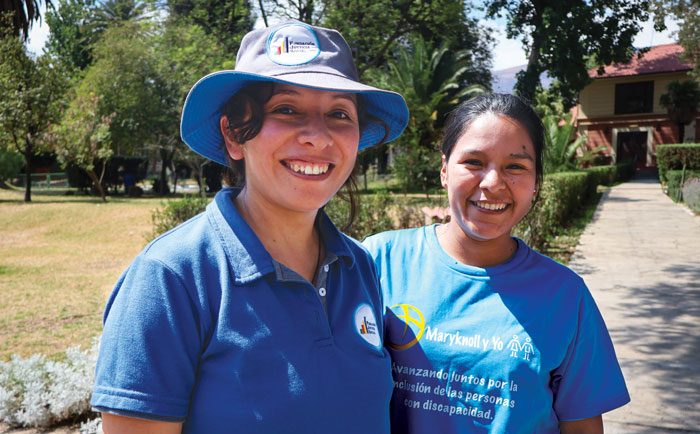
Every Thursday from 9 a.m. to 2 p.m., shoppers browse APAE’s abundant produce and Kawsay’s offerings of honey, bread, soaps and other products. Andean music plays in the background. Joining the fair are neighbors, people from local small businesses, and members of other partner organizations on the property.
Carlos Prado, an author and practitioner of natural medicine, usually gives a presentation. A longtime friend of Maryknoll whose interest in horticulture was nurtured at the center, Prado recently “went through the vegetables one by one and talked about each of their nutritional benefits,” Father Marina says. He adds that Prado helped create a catalogue of the property’s plants and trees.
Three priests, two brothers and four seminarians use the center and residence as a home base, coming together regularly for Mass, meals and gatherings. Maryknoll Brother Joseph Bruener is kept busy as house manager.
The seminarians’ enthusiasm, especially, adds much energy to the center — an ideal place to hone their ecological skills. Yohana Maswizilo dons a beekeeper suit to remove honeycomb from two beehives. Another candidate, Barrack Odeka Auka, tends saplings. “We assist in a reforestation project in the Amazon,” Father Marina explains. “We are trying to grow some of those trees here, in order to learn all the process.”
Assigned to Cochabamba for two years, the young men are there to complete their Overseas Training Program (OTP) — an essential part of formation for Maryknoll priests and brothers — as they prepare for a lifetime as missioners.
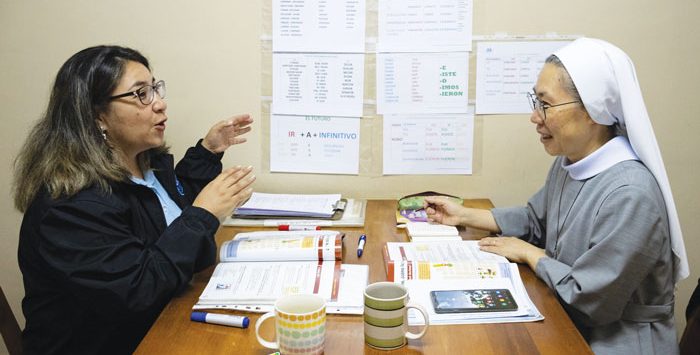
Maryknoll has a long history of cultivating mission in Cochabamba. Formerly known as the Maryknoll Mission Center in Latin America (CMMAL), the center housed multiple programs. Since the Maryknoll Language Institute’s opening in 1965, some 12,000 missioners studied Spanish, Quechua and Aymara there. In 2002, a comprehensive international mission formation program was launched, drawing new participants — including Father Marina, who is originally from the Diocese of San Isidro, Argentina. A host of leadership programs were offered from 2007 u ntil CMMAL closed.
“We were in a process of right-sizing, and with the pandemic everything was complicated,” Father Marina explains. “Imagine, all these programs were focused on in-person relationships.”
He continues, “The CMMAL project closed in 2020, but Maryknoll didn’t close. We still offer people here what they need to be a good missioner.”
Father Marina points to the example of language study. A newly formed school rents office and classroom space at the center. Its staff consists of four former Maryknoll Language Institute teachers.
Viviana Flores is director of the project, called the Intercultural Linguistic Center for the World from Latin America, known by its acronym in Spanish as CLIMAL. Osvaldo Mamani assists in administration. Although it was intimidating to incorporate on their own, Flores says, the teachers took courage from their experience with Maryknoll.
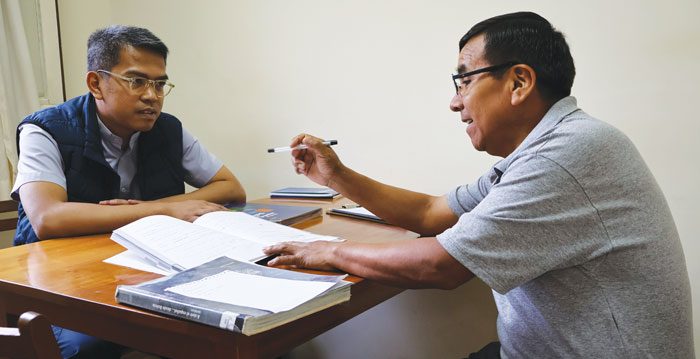
“We knew how to work in a classroom,” she says. “We have worked with a variety of students from different cultures, countries and languages.” She adds, “Maryknoll was a window to the world for us.”
The center continues to offer language classes to people preparing for mission in Latin America — including Maryknoll’s short-term volunteers, lay missioners, and OTP priest and brother candidates.
Like this project, Father Marina says, “other organizations use the buildings to have a place to do mission. Talking to each one of them, we saw possibilities to work together. And that gave new life to this place.”
Something else was happening, he says. Inspired by Pope Francis’ encyclical Laudato Si’: On Care for Our Common Home, in 2021 the Maryknoll Fathers and Brothers committed the Society to the care for God’s creation. The priests and brothers serving in Bolivia agreed to take on a green project at the center and residence.
Cochabamba, a sprawling metropolitan area of 1.4 million inhabitants, suffers from climate change exacerbated by haphazard urban planning. Just next door to the center, a 26-story apartment building was erected, interfering with the area’s groundwater system. In response, the local neighborhood organization blocked another construction project and called for studies on potential environmental impact.
“Here, with the help of our partners, there is an opportunity,” Father Marina says. “Our goal is to make this center and residence an ecological witness for Cochabamba.”
Featured image: Left to right: Maryknoll Father Alejandro Marina, Eliza Encinas Diaz, Isabel Huanca, Elva Caballero and Leonel Cerruto are shown at the Maryknoll center in Cochabamba, Bolivia. (Adam Mitchell/Bolivia) ![]()

